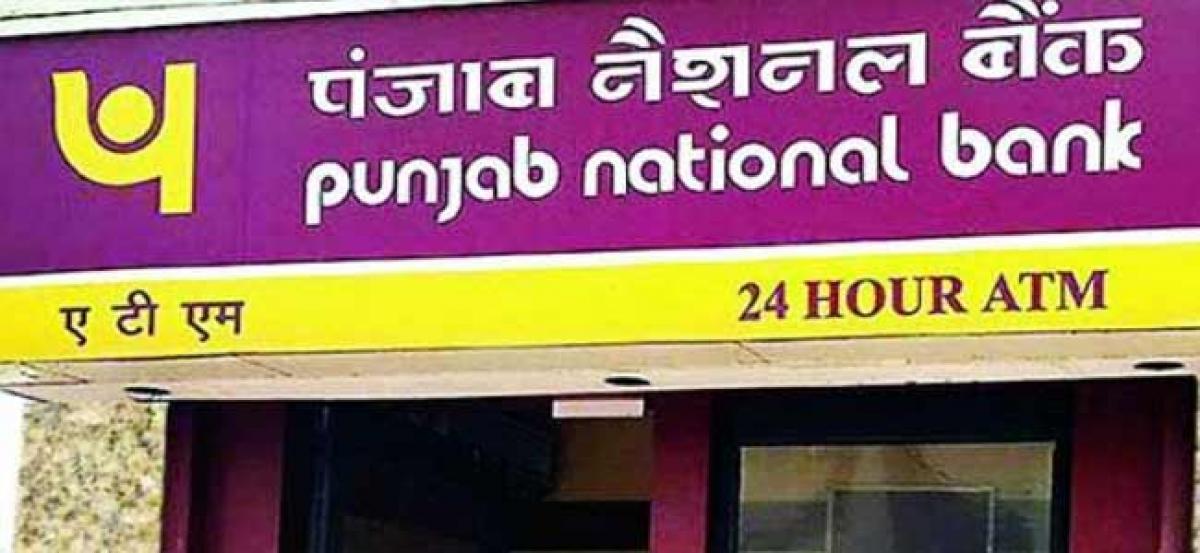PNB’s overseas operations also under fraud cloud

Its not just jeweller Nirav Modi and his uncle Mehul Choksi who have run away with Rs 13,000 crore of Punjab National Banks money It now turns out that the fraudhit bank has been robbed of another Rs 271 crore by a group of businessmen in UK using similar modus operandi
New Delhi: It’s not just jeweller Nirav Modi and his uncle Mehul Choksi who have run away with Rs 13,000 crore of Punjab National Bank’s money. It now turns out that the fraud-hit bank has been robbed of another Rs 271 crore by a group of businessmen in UK using similar modus operandi.
The UK subsidiary of PNB has filed a case in the British High Court against five Indians, one American and three companies for fraudulently misleading the bank into lending them millions of dollars.
In its suit, PNB (International), which has seven branches in the UK, claimed that the individuals and companies “duped it” into lending them money with “fraudulent misrepresentation in respect of numerous loans” and eventually breached the contract too.
PNB has been in the news recently over the Rs 14,357 crore fraud involving Modi and Choksi. The duo defrauded the bank by raising credit overseas with fake guarantees issued by rogue PNB staff. This alone resulted in the bank’s January-March (FY18) quarter losses soaring to Rs 13,417 crore, the highest in the history of a public sector bank.
The bank’s suit in Britain claims that it advanced loans in dollars from London to four companies registered in the US between 2011 and 2014. The companies — South Eastern Petroleum LLC (SEPL), Pesco Beam USA, Trishe Wind and Trishe Resources — were all operating in the renewable energy sector and the loans were given “to assist in the financing of the construction of a lube oil re-refining unit in South Carolina, and the development and sale of wind energy projects.”
However, as it turned out, the companies seemed uninterested in running power operations but siphoned off the PNB money awarded as loan in a “scheme that was fraudulent from the outset.” These entities also made false claims about their balance sheets and status of projects to secure the loan.
As per PNB records, SEPL, which operates an oil recycling plant in South Carolina, received $17 million in loans in March 2011 with $10 million coming from PNB and $7million from the Bank of Baroda.
In October, PNB gave another $1.5 million to SEPL and in June 2012, both banks advanced a further $3 million. None of these loans have been repaid and SEPL has in fact gone into liquidation now.
The other company being sued is Pesco Beam Environmental Solutions, which specialises in engineered and manufactured systems in oil re-refining. Pesco Beam India is based in Chennai. Pesco Beam has a US subsidiary based in Virginia, which also received loans of $13 million and has not paid the bank back.
The American in this group, Staengl, has also been sued for not adhering to loan repayment cycle. Staengl has claimed that there was no fraud and it was a “legitimate loan.” The business failed due to market conditions.
PNB is also suing Trishe Resources, a wind energy company in the US, and its owners Vathsala Ranganathan, Ramkumar Narasimhan and Ravi Srinivasan, who all live in Chennai. PNB alleged that Trishe Wind borrowed $10m and Trishe Resources $3m and these loans remain unpaid. In 2014, Trishe Wind in the US was declared bankrupt and its assets and liabilities were transferred to Trishe Resources.
Sources said PNB in its suit has claimed all the parties had fraudulently misrepresented that Indian conglomerate Shriram Group was backing their projects.
“The claimants would not have advanced such large sums of money to the defendants had it been informed that these individuals were operating on their own and had no connection with or prospective financial backing from Shriram Group,” PNB’s claim stated.
It added: “The defendants acted jointly and in concert in making the fraudulent misrepresentations and all the defendants are interconnected and all have benefited from the claim that the Shriram Group was financially supporting SEPL and Trishe Wind.”
Nicholas Vineall QC, the barrister for eight of the defendants, claimed that the loans to SEPL and the initial $10 m to Pesco Beam were given to “support the completion of an oil re-refining plant.”
The subsequent $2 million loan was made in an attempt to rescue the re-refinery project which was by then in difficulties, said Vineall in his written submissions.
“The business of the borrowers failed as a result of economic pressure on renewable energy businesses in the US created by the massive rise in shale gas extraction and the falling oil price and/or poor management. Given that the claimant bank is out of pocket, it is not surprising that the claimant has commenced proceedings,” he added.
Interestingly, in defence of his clients using the Shriram Group’s name, Vineall said: “Shriram is a common business name in India because it refers to the Indian god Ram.” He argued that his clients never claimed they were being backed by the “Shriram Group” but by “Shriram Auto Finance.”










